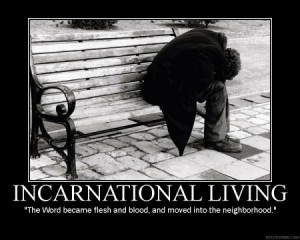 Hint: It has nothing to do with snakes or wearing green or potatoes or beer.
Hint: It has nothing to do with snakes or wearing green or potatoes or beer.
…Well, maybe it has a little to do with beer…
In the fifth century a 16 year old British Roman named Patricius was captured and sold into slavery in Ireland. The next six years he spent in the freezing cold among the barbaric celts. Although he was eventually set free, Ireland never really released him. He trained as a priest and returned in what was likely the first missionary effort since the time of Paul.
Patrick wandered a land sparsely populated by a people most well known for stripping naked, painting themselves and screaming into battle. In that place, he built monasteries. Simple outposts where people could come, live a life of rhythm and grace. Crops were farmed, books were reproduced and, of course, beer was brewed.
Over time, these monasteries drew communities, which became villages, which became cities. These people were drawn into a sense of community and an ordered life. As they were drawn into community, they were drawn to Christ. When the Roman Empire fell, and the formerly civilized Europe started to look a lot like barbaric Ireland, the spiritual descendants of St. Patrick spread through the now barbaric continent, building monasteries and communities as they went.
In our world Christians are known for picketing funerals and cheesy t-shirts and legislating morality. Patrick stands as a shining example of how the lovers of Jesus are to live amidst the ruins of the fallen empire of christendom.
I post this every year, but it bears repeating. A quote from my favorite prayer, the Brestplate of St. Patrick:
Christ with me, Christ before me, Christ behind me,
Christ in me, Christ beneath me, Christ above me,
Christ on my right, Christ on my left,
Christ when I lie down, Christ when I sit down, Christ when I arise,
Christ in the heart of every man who thinks of me,
Christ in the mouth of everyone who speaks of me,
Christ in every eye that sees me,
Christ in every ear that hears me.
(Much of this story was gleaned from How The Irish Saved Civilization [text or audio], which I’ve previously reviewed.)









 Tweets
Tweets